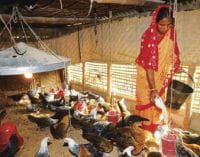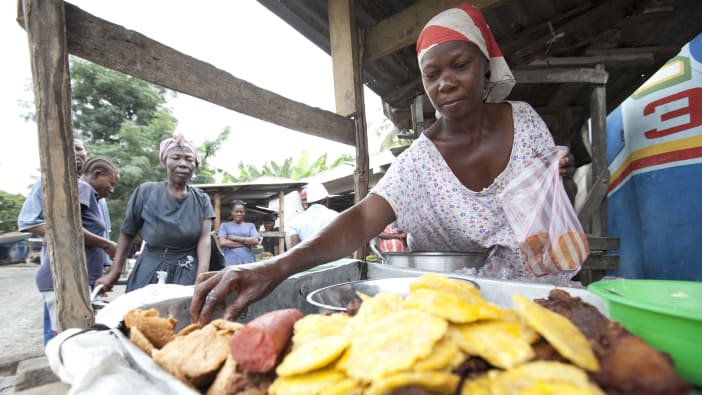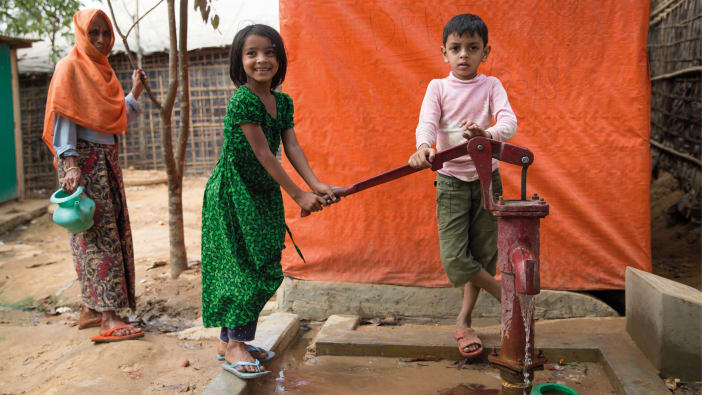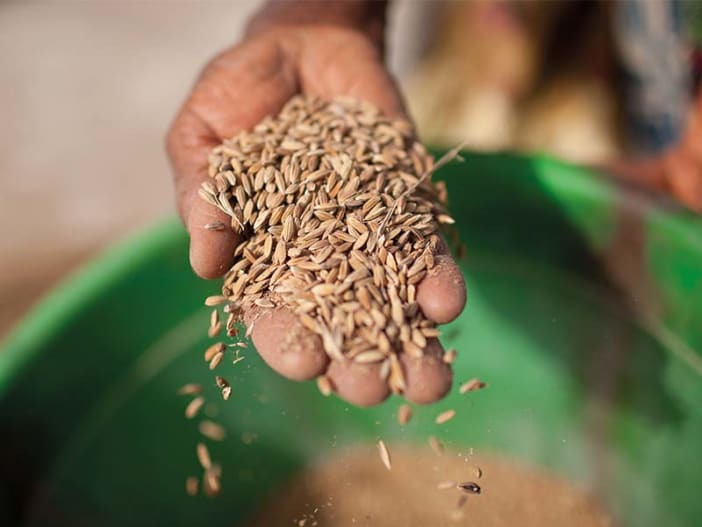Micro-finance is one of the most powerful tools that can be used to address global poverty. It builds self-esteem in the individual and self-sufficiency in those receiving financial services. Micro-finance works closely alongside other development interventions, such as health, nutrition, democracy and education, and offers support and encouragement.
When micro-finance is carried out well, it can:
- relieve suffering
- increase dignity
- enable sustainability
- inspire supporters.
HEED Bangladesh (Health, Education and Economic Development) has been supporting people with loans since the early 1990s. Initially, members of HEED’s ‘People managed credit programme’ saved money in a personal bank account. Sometimes members would take loans from their own savings to start businesses. This method of micro-finance did not work very well, so HEED changed the programme. It decided to collect the savings from the members together in one place and provide them with loans according to their need. This brought discipline and good management to the work.
Also at this time, HEED implemented a range of policies to protect itself and its members. They also recruited specialised staff members to run the newly named ‘Micro-credit programme’. The pro gramme was given a separate structural and manage ment identity. HEED has changed its strategy so that it can run the Microcredit programme in a sustain able way without any support from external donors.
HEED provides various types of loan to its members depending on their needs. These loans help people to start and build on small businesses which will increase their income. They lend money to poor people without financial security. The loans vary in size of instalments and duration according to the needs of the clients.
HEED’s Micro-credit programme has shown that poor people can make a real difference to their own lives and their community with just a small loan.
Elgin Saha is the Executive Director of HEED Bangladesh.
PO Box 8178, Mirpur-2, Dhaka-1216, Bangladesh
Email: [email protected]
Web: http://www.heed-bangladesh.com/
For more information about micro-finance see Resources, page 7.
Brigita’s story of success
Brigita Hasda and her husband Sudhir Mardi became unemployed and had to live with Sudhir’s parents. After a few months his parents asked them to move out. Brigita and Sudhir felt lost with no means of income. They tried very hard to find jobs, but they were unsuccessful. During this time, Brigita gave birth to a daughter which made it harder for her to find work.
At that time, Brigita met Mujibar Rahman, an Area Manager of HEED’s Micro-credit programme. He suggested that Brigita tried poultry farming. She and some other women formed a group and name it ‘Rangdhonu’, which means rainbow in Bangla. HEED organised a five-day training session for them. After the training the women each received a loan of Taka 2,000 (about US$29) from HEED. With this money Brigita bought seven chicks. She sold them a while later and made a profit. She then paid back her loan. Brigita was really inspired by what she had achieved and she wanted to do this again but on a bigger scale. She approached HEED with her ideas.
HEED arranged for her to attend a month-long government training session in Dhaka. After that training Brigita received a loan of Taka 8,000 (about US$114) from HEED with a very low interest rate. She bought 700 chicks and after two months she sold them and made a profit. She immediately paid back her loan. Mujibar suggested the idea of a chicken hatchery to Brigita and she really liked the challenge! HEED, once again, helped her financially with the hatchery. Brigita and her family are now producing almost 5,000 chicks from the hatchery and they also have 1,800 chickens in their farm.
According to Brigita, ‘Nothing would have been done if we did not have HEED by our side all this way. HEED showed us the way of life and now we are a well-off family.’










